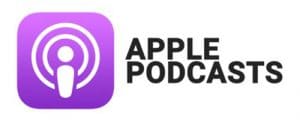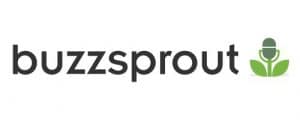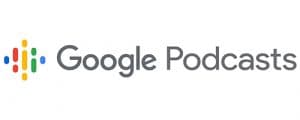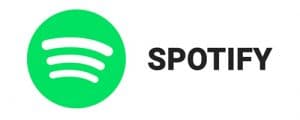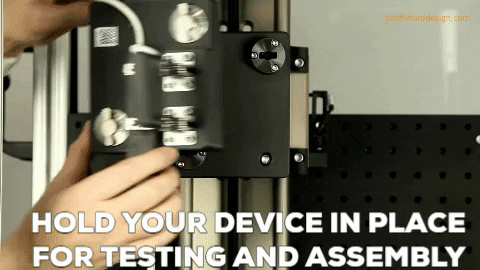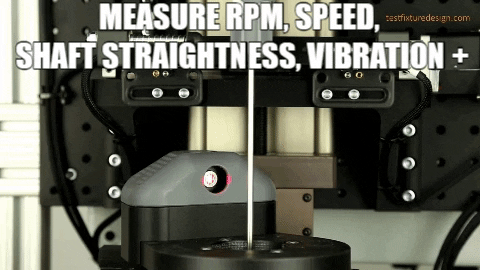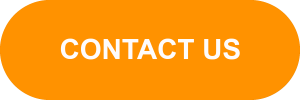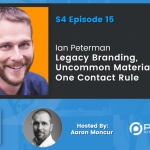Mark Herschberg | Essential Skills for Success They Didn’t Teach in College
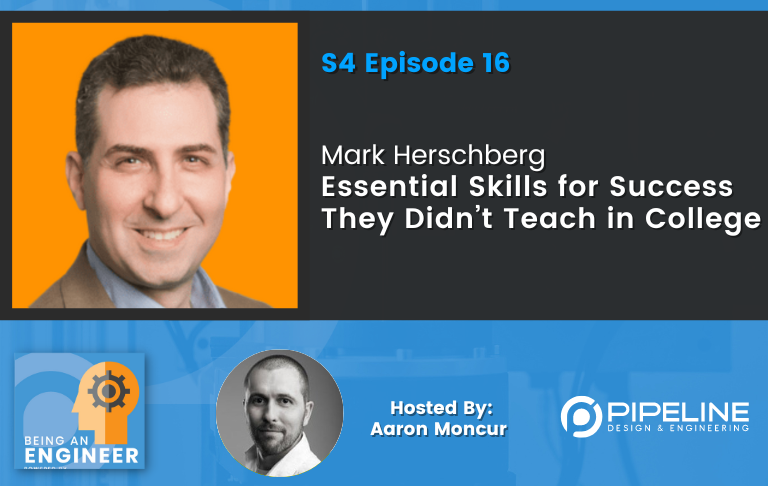
Who is Mark Herschberg?
From tracking criminals and terrorists on the dark web to creating marketplaces and new authentication systems, Mark Herschberg has spent his career launching and developing new ventures at startups and Fortune 500s and in academia. He helped to start the Undergraduate Practice Opportunities Program, dubbed MIT’s “career success accelerator,” where he teaches annually. At MIT, he received a B.S. in physics, a B.S. in electrical engineering & computer science, and a M.Eng. in electrical engineering & computer science, focusing on cryptography. At Harvard Business School, Mark helped create a platform used to teach finance at prominent business schools. He also works with many non-profits, current serving on the board of Plant a Million Corals. He was one of the top-ranked ballroom dancers in the country and now lives in New York City, where he is known for his social gatherings, including his annual Halloween party, as well as his diverse cufflink collection.
https://www.thecareertoolkitbook.com/synopsis
https://brainbumpapp.com/#about
Aaron Moncur, host
EXPAND TO VIEW EPISODE TRANSCRIPTION
Aaron Moncur 00:00
Live today we are introducing a new program to the being an engineer podcast to recognize engineers who excel in their field, go to teen pipeline.us/excellence and fill out the form with the name of your nominee and a short description of what makes him or her deserving of the award. Winners will be announced and recognized on the show and will receive some complimentary being an engineer podcasts swag. The program is live right now go to Team pipeline.us/excellence and give an engineer the recognition he or she deserves.
Mark Herschberg 00:37
If you wouldn’t tackle a one year project without a plan, what makes you think you can tackle a 30 year project known as your career just by winging it?
Aaron Moncur 01:00
Hello, and welcome to the being an engineer Podcast. Today we are speaking with Mark Herschberg holding a bachelor’s and master’s degrees in physics, electrical engineering and computer science. Mark has worked in a variety of fields from tracking criminals and terrorists on the dark web, to creating marketplaces and new authentication systems to starting a career success accelerator at MIT, where he teaches annually. He is also the author of the career toolkit, essential skills for success that no one taught you, which will be the primary focus of our conversation today. Mark, thank you so much for joining us.
Mark Herschberg 01:37
Thanks for having me. It’s my pleasure to be here. All right.
Aaron Moncur 01:41
So we will spend a lot of our time maybe most of our time talking about this book that you’ve written and how it can help engineers advance their careers. Before we get into that, can you share just a little bit about your, your career, up until this point, and how it led to you creating this this career toolkit book. And if you want to spend an extra minute or two on the the catching criminals and terrorists on the dark web, I’m sure people would be thrilled to hear the story behind that.
Mark Herschberg 02:15
Sure, I’ve had a very interesting dual career. When I began my career was the 1990s. I just graduated from MIT was the.com era. And I started out as a software engineer, I quickly realized I wanted to become a CTO, Chief Technology Officer. And what I saw was that Well, I had peers who just said it’s a.com error, I’m gonna pretend I’m a CTO because I can start my company give myself that title. I knew I wanted to be actually qualified for the job and not just have the title. And what I realized is that to become a CTO or really any type of senior person, it’s not just about being the best engineer, sure, I needed to be good at my job and solve engineering problems. But there were a whole bunch of additional skills, I would need leadership, team building, negotiating communication, all these other skills, they don’t normally teach us. So I began to upskill myself. And now as I was doing this, I realized these skills apply not just to the senior people, but everyone in the company. And I began to upskill. My team. As I was doing this, MIT had gotten similar feedback to companies who come and hire our students said, we want to see these skills. By the way, not just in recent graduates or engineers, just universally, we want to see these skills, but we can’t find them. So MIT created the Career Success accelerator. When I heard they were doing that, I reached out and said, Well, I’ve developed some content for my team, please take it, use it enjoy. And I thought that would be a one and done conversation. But instead, they asked me to create some more content. And then to stay on in Teach alongside with the faculty because myself and others like me, who we brought in, brought a practical perspective from being in the field. So I’ve spent in parallel to my main career that I’ll talk about in a moment to touch on those other points. I spent over 20 years teaching at MIT. Also some other schools and that led to ultimately the book, the app speaking and the other stuff that I do. Now my main career, becoming a CTO at different tech companies. It has spanned multiple verticals. Typically, I’m doing a traditional startup, I have helped a couple of fortune 500 To play startup. I have been a fractional CTO, I’ve been a consultant. I’ve been in multiple fields. My favorite field is my background. My graduate work was in cybersecurity. And I got back into that a few years ago, one of the companies we did intelligence gathering on the dark web, so we would go out and see what’s happening on there and get what information we could which we could then process and share with certain club is government and otherwise, it sounds very exciting. But really, it’s just like most other software companies and that we are gathering data and processing it, that we were to be fair, maybe a little more paranoid and our security posture was a lot stronger than any other company I’ve been at.
Aaron Moncur 05:20
This is a total tangent here, but I’ve never been on the dark web. But you know, you hear things right. What is the dark web? What is it exactly? Does it look completely different from you know, going to google.com or Amazon or something? What does it like,
Mark Herschberg 05:35
you just turn your settings to dark mode, and poof, you’re on the dark web. That’s it. The Dark Web means things that are not accessible through a search engine, or in other public ways. The most common way people access the dark web is through Tor, the onion router, and it uses a different protocol, the HTTP, so it’s not indexed by Bing, or Google or other search engines. That’s really all it is, is just saying, there’s not a lot of visibility. The analogy is the dark web, it’s like a dark alley. A dark alley isn’t necessarily a bad place. But if you’re choosing to do something bad, you’ll probably do it in the dark alley and not the well lit street. So there’s surely of fair, okay, normal, non nefarious things that happen on the dark web. But a lot of the bad things very intentionally take place there as well.
Aaron Moncur 06:35
That’s a great analogy. I like that a lot. All right. Thank you for humoring me there. Well, the title of your book is the career toolkit, essential skills for success that no one taught you. And the whole premise of this book, I guess, is that there are these skills that you don’t learn in college. But we spent, you know, 10s of 1000s, if not hundreds of 1000s of dollars, educating ourselves at at a university, are we really missing these critical skills and what are they?
Mark Herschberg 07:06
we are indeed, let’s talk about what the skills are, and then why they are not taught. Now, the skills you can ask different people, and you will get a list anywhere from five to 50 different items on the list. And really, it’s the same list, it’s just how you choose to bucket it. So for convenience, I put into 10, very clear buckets. And again, these are not things that I just came up with off the top of my head. This is what we’ve seen from surveys of companies from research done by academics, research done by practitioners. But over and over again, across decades, we see the same results, the 10 skills, I put them in three different categories the first career. So one, creating and executing a career plan, we need to have that to be successful to this bucket is working effectively. And these are skills like managing your manager understanding corporate politics, how you deliver value to your customer and Company. Three interviewing now interviewing is one we said, well, we’ve talked about that I remember my careers office, they used to teach us that, but they teach you how to be a candidate. And so many of us have to hire other people, whether our subordinates or peers. And yet, no one’s actually taught us how to do that. Then there are leadership skills. There are management skills, and I break into two buckets. Some people combine them, there’s the people side of management, but then the process side of management as a separate skill. And then the third gen bucket has four skills in it. Communication, networking, negotiating, and ethics. Now, you’ve probably heard all of these at one time or another. This isn’t a surprise, it’s not new. And some of them like leadership and communication, you’ve probably heard it repeated. And yet, we spend very little time actually teaching, we just kind of assume you’ll figure it out as you go. And the reason for this, our education system is backwards facing. Let’s just look at college. We can talk about high school if you want, but college, it’s run by these professors. And these professors, they are deep experts in their fields. They all had PhDs, which meant they got more and more narrow, as they got to be more of an expert. And so when we go in and say I want to be a chemical engineer, the more senior engineers the professor’s say, well, we the experts have decided, here’s what you need to learn. You need to take some basic chemistry and physics and then intro to kami and these advanced classes into lab classes. And if you do all this, we’re going to give you a piece of paper that says you have developed a certain level of knowledge in chemical engineering. That’s all they’re saying. They’re not saying you’re Good chemical engineer, they’re not saying you’re a good employee, they’re just saying you have acquired this level of knowledge. And for academics, that’s fine. And then you get a more senior piece of paper called a master’s degree and a PhD, each time getting more narrow. But in the real world, it’s not just I have this knowledge of the applicability, which is less relevant inside academia. And so unfortunately, it’s run by professors who don’t think about really the practical application of our knowledge to the workplace.
Aaron Moncur 10:33
We almost need a second college right, which I guess is why MIT came up with its course and you help them?
Mark Herschberg 10:40
Absolutely, we need to broaden what we teach to include skills for those who aren’t just going to be academics.
Aaron Moncur 10:46
So why is it that we need these these additional skills, I mean, listening to talk about it, there are 10 buckets. That’s a lot. And we’ve already gone to school to become engineers, we’ve learned thermodynamics, physics, mathematics, heat transfer, fluid dynamics, statics, all of these different courses. And we have the technical skills. And I mean, what we want to do is be engineers, right? So why do we need all the other skills,
Mark Herschberg 11:11
The analogy I’m gonna use usually have to set up and caution people, we’re going to do some math, but for this audience, you’re gonna say this is trivial, because we’re going to do math way back in middle school, a magic a will rectangle, that’s four by 10. And what you want to do is increase one of the sides by two units to maximize the area. Now, I’m sure everyone instantly said, Oh, four to 660 units, great. If you think about what we’re doing, when we put those two units on the short side, those two extra units are amplified by that long side. Whereas if we put the two units on alongside, they’re only amplified by the for all of us have a short side and alongside, in fact, more than two. So imagine someone you probably know this person, they are incredibly smart, within, say, your discipline, they’ve got this very long side and engineering, they are brilliant and come up with these incredible solutions. But they might be difficult to work with. Or they might be hard to follow in terms of communication. Maybe non engineers just say, I don’t get because they don’t know how to communicate to non engineers, there might be these other things, the short sides, and even though they are brilliant, have this very long side, that short side, this other skill limits their ability to be effective, which is represented by the overall area. And so again, all of us have more than two sides, we focus our long sides. And we do have to maintain that. I know in my world in software engineering, if I’m not paying attention to how to that long side, I’d still be programming in COBOL. And that would be problematic. We do have to keep up with that. But we also if we want to increase our effectiveness, need to work on the short sides. And the good news is, if you effectively take the derivative, you’re getting a much larger slope, you’re gaining a better ROI per unit invested on that short side. So it’s a really good place to invest some time.
Aaron Moncur 13:19
Great, great. There’s a common saying that we should focus on our strengths not our weaknesses. I think that’s kind of what you’re saying here? Well, maybe not. Not really,
Mark Herschberg 13:29
We need to focus somewhat on our weaker areas to shore them up. You don’t need to be Yeah, for example, let’s say you’re a bad communicator, you don’t need to work out to the point that you can now stand on that 10 stage and deliver that amazing TED presentation. But if you can’t explain complex ideas to people in marketing and other non technical fields, maybe that sign to work on or just making your presentations a little sharper, will be better for selling your ideas to the rest of the team. So it’s just about getting a little bit better. And actually, let me give you another simple math analogy. Let’s take negotiations. Imagine you’re an engineer, you’re 25 years old, you have a job for $70,000. But you have a job offer for 70,000. Instead of simply accepting that job. Imagine if you said Wait, I’ve learned to negotiate I’m going to negotiate that offer. And so you negotiate for $1,000 more 70 to 71. That certainly seems doable. That’s one phone call or maybe a couple minutes of emails back and forth. And now you get this job at 71,000. If you do nothing else in your career, if you stay in that job for the next 40 years, 510 minutes of work, just got you $1,000 for 40 years, you literally just earned yourself $40,000 more. But of course you’re saying there’s no way I’m staying in that job for 40 years. yours, you will have promotions and raises, you’ll have other opportunities, that’s not just going to be for $1,000, it might not even just be for money. But you’re going to continually gain that little advantage, each time each step of the way is going to be slightly larger. And you’re going to get this compounding effect that can literally add hundreds of 1000s of dollars to your lifetime earnings. It’s not about being the world’s best negotiator. It’s literally taking that tiny step of 70 to 71,000. But if you can just take that small step each time, huge compounding effect. And that’s why working on not necessarily our longest side can really have a tremendous impact on our careers.
Aaron Moncur 15:44
That’s a great way to put it. One of the things you talk about in the career toolkit book, is this idea of having a career plan. What what is a career plan? And how do we come up with one?
Mark Herschberg 15:57
Imagine your boss says to you, here’s a very complex engineering project. And it’s January 1, and we need this done by the end of the year. What do you do? You say? Okay, well, sounds good. We’ll meet December 31, and cross your fingers. Hopefully I’ll get done by that. Of course not no way your boss will accept that. He said, Well, okay, big project, let’s plan it out. Let’s have certain milestones, let’s have a project plan, let’s do check ins, let’s adjust as we go. That’s how we increase our chances of success on a year long project. If you wouldn’t tackle a one year project without a plan, what makes you think you can tackle a 30 year project known as your career just by winging it? And what trips people up as they say, Well, how am I supposed to know what I’m doing 10 years from now? How are you supposed to know what you’re doing? October 17. When you start the project January 1, you don’t know the details. But you can have a placeholder, you have some sense of where you need to be. You can do check ins and adjustments along the way. And we’re going to apply these same ideas to our career. It’s having a plan, it’s gonna be fuzzier, further out, but having these checkpoints because if we just cross our fingers and say, Well, I hope maybe in 1015 years, I’ll be a VP, the chances of success are pretty slim.
Aaron Moncur 17:20
Mark, I can tell you’ve done this a few times, you’re very clear in communicating these answers. There’s one of them right there. Right communication. Excellent. I work at a small business, pipeline design and engineering. And luckily, we have pretty much zero corporate politics or bureaucracy here. In fact, one of our core values is governed by productivity, not bureaucracy. Anyway, I have friends and colleagues who do work at large companies where corporate politics do exist. That’s another thing that you talk about in the book is navigating these corporate politics. What does that even mean corporate politics? And what are some ways that engineers can navigate such a system?
Mark Herschberg 18:07
Let’s first define what corporate politics is. The as most of us think, well, it’s where they pick their buddies, and it’s nepotism. And it’s not looking for the right answer. It’s looking for who’s going to cover my behind, and I’m going to cover their behind. And that’s certainly one implementation of it. But corporate politics, it’s kind of like actual politics and governance. If we think about democracy, and government, it can be a great thing. We can have a great government, and it can do great things, and we can be happy. Or we can have ones that are corrupt, and one where they do give their buddies a jobs, and it’s all about giving back people who have been their political patriots. So we know politics is not inherently bad, but we certainly notice it more often when it’s bad. And the same thing is true. Within the corporation. Politics, what really means is taking more of a relationship focus. And this can be challenging, particularly for engineers. Remember that we grew up we have been trained, where there are objective right answers. You and I and our peers took the same test had the same questions, gave the same answers. And those of us who got more of the right answers were better, better grades, better job opportunities. The professor wasn’t playing favorites, we could objectively say, who was better. That’s different from our peers, who, let’s say took a class on Shakespeare. You can imagine two different people in that class giving two completely different interpretations of a Shakespeare play. They could both get A’s they could both get Ds, one or the other. It’s a lot more open to interpretation. And that’s how the world is for most people. It’s not as objective Have as we are used to. When the world gets fuzzy, we have to remember that some of the metrics that we use aren’t always objective. So we again, think about there’s a right answer and a wrong answer. And we can potentially find an optimal answer we can literally using calculus, find here is the optimal answer for this particular problem. But there’s not always an optimal answer. That might be due to uncertainty that might just be due to there’s multiple optimal answers. In the real world, sometimes when people need to make a decision, they can’t do the math, or they can’t find what is the mathematically optimal answer. And they rely on other shortcuts. So imagine if I’m a busy executive, and there’s a project before us and two people come to me, I’ve got Sharon, and I’ve got Dave, and Dave pitches, this really creative solution, Dave can really pull out some brilliant ideas, and I’ve seen him work miracles. I’ve also seen him miss things, miss deadlines, and sometimes those miracles don’t happen when they do. They’re amazing. But they don’t always happen. Sharon, on the other hand, she is maybe not quite as brilliant as Dave, but boy, she is reliable. I know she gets it done. When she says this is the deadline, that deadline gets hit. So Sharon and Dave, they’re both pitching, why their team should solve this problem. I don’t have time to read these detailed 60 Page reports and go through the analysis, we have to make a decision. You know what Sharon is the one I know, gets it done. I can’t risk this client. I gotta go with Sharon, I might be missing some upside that Dave can provide. I’m dealing with Sharon, not because I looked at their detailed analysis and said, let me do the math to make sure it’s right. I’m going with what I know about them. I’m using that as information to help guide me, it’s not objective information, necessarily. Now, maybe if I was measuring literally percentage of jobs completed on time, you could say a subjective, you couldn’t say it’s my opinion of them. But that is a valid way to make a judgement about how we’re going to proceed. It’s when that goes from, you know, Sharon is reliable to Well, I just like Sharon over Dave, because Dave Aiono. He’s kind of a jerk some time around like his humor. Sharon’s cooler. So yeah, I have beers with Sharon. So we’ll go with her. That’s where it crosses a line from. There’s some validity to this, too. It’s just personal and arbitrary.
Aaron Moncur 22:40
Okay, so developing your reputation or your brand, some might say, within that corporate environment can be really truly important for engineers starting out in the workplace.
Mark Herschberg 22:53
It is an I had a real wake up call early in my career, I was down interviewing for a job as a software architect. So I flew down to this company, I’m wearing a suit because that was appropriate for that type of interview at the time. They had put me in a break room, I was chatting with some people before the formal interview began, and people had been filling into that break room. We’re just chatting, we have a conversation about corporate culture. After about 10 or 15 minutes, one of the women in the room asked me said, so are you just a business guy? Or do you have any technical experience? I said, Oh, well, actually, she didn’t know I was applying for it. So it actually I’ve got a couple computer science degrees from MIT. She said, Oh, that was it. End of story. Like I just shut her up with that. And that wasn’t my intention. But I realized what happened that moment. As soon as I whipped out MIT. Boom, there was my credibility. And throughout my career, no one’s ever said, Oh, Mark, you went to MIT? I don’t know, is this math going to be too hard for you? You got it. Right. All of us, as engineers, we probably hear, Oh, you’re an engineer, you can do the math, this isn’t gonna be too complex. So this spreadsheet, we’re using some complex formulas, you know, you’ve got, we are signaling by the fact that we are engineers, or went to certain schools that we can do that. Where I did not get that signal as people did not believe I knew anything about leadership, or team building or corporate strategy or marketing, because you went to MIT. That’s not what you do at MIT. That’s not what you do as a CTO. And so my brand was very strong for technical work for math for quantitative stuff. But the perception was that I didn’t have these other skills. This by the way of why some people go to business school because it’s sending the signal. Oh, I have an MBA, therefore, I do know leadership finance strategy. Not everyone does just as we know some of the end Janeiro’s we went to school with, they don’t know everything we feel like they should. But it sends a signal. Now, this is just an example of things we’ve done. But all of us are sending out signals about what we are good at, or known for where people should turn to us when they have challenges. And we have that whether we’re consciously working out or not, I didn’t intend to say, Look at me, I’m technically strong, but it came out of my degree. And so we all need to be conscious of what is our brand? How are we perceived, and then choose to actively manage that, because if there is a role you want, that requires a different perception, if it’s a senior role, and they say, Well, yes, you have to be an engineer, but also good, these other skills, and we don’t have that perception of you in that way, you have a mismatch, so you want to be very actively managing your brand.
Aaron Moncur 25:52
I worked with the sales coach a while ago, and right before I actually signed up and handed over the check to pay for this class, he gave me something that was worth the value of the entire class. And he’s what he told me was, take what’s on the inside, put it on the outside and talk about it. And as I hear you talk about the brand, and how to develop a perception of yourself that others see that that that sentence comes to mind. Because if I’m maybe a young engineer, and I’m thinking to myself, I really want to be in, I want to be a project lead, you know, three years from now, I want to be a project lead. And I’m thinking okay, what what is the brand I need to portray or develop in order to be a project lead, I might get kind of stuck or lost. And, and I might not think to myself that, hey, you know what, I can take what’s on the inside, put it on the outside and talk about it with my manager, I can approach my manager and say, Hey, I would like to be a project lead in two or three years. What do I need to show you in order to earn that role? Right? And your manager is probably going to tell you, but I think so often, we either don’t feel comfortable sharing those those feelings, those thoughts? Or maybe we don’t even realize that that’s something we can do. But in reality, it’s so important to have that conversation. This is where I want to be in three years. You’re my manager, how do I get there, you know, helped me understand what I need to change about myself or develop, etc.
Mark Herschberg 27:25
That’s exactly right. We think of our project plans. We need this delivered by the end of October. Where do we need to be by October 1? By August? What do we need to do to get there and if you’re not sure, talk to other people to develop that plan. I’ll give you a really good tip from my friend Dorie Clark, she is a leadership thought leader books and does coaching. Dory said go to all the people in your network. Now that might mean within the company, it might mean externally, it depends on the scope you’re looking at. And ask them. Give me three words that describe me. When you think of me, what are three words you use to describe me? I’m not gonna judge you. If you want. You can do this anonymously, though gain, knowing who it is you can talk to them and follow up. And you look and look at that list of adjectives. See the ones that stand out. So a lot of them say intellectual, well, okay, that’s good for this job. They need someone smart. Okay. But you don’t see things saying, good teammate. And maybe you know that in this company, teamwork, and being a good teammate is really seen as valuable. So you can look at that list and understand, where are you being seen as having that attribute? Where might you’re not quite blind spots, but other areas where you don’t have the brand is strong. And that’s the area you can focus as a really great tip from Dorie Clark.
Aaron Moncur 28:55
I’m going to bounce around just a little bit here. That’s that’s a really great tool. By the way. Thank you for sharing that. A little while ago, a few minutes ago, you talked about interviewing and not just being a candidate, but interviewing candidates who might someday we’ll be working alongside you as part of your team. What are some some of the questions that you really like to ask of candidates when you’re interviewing them?
Mark Herschberg 29:24
It’s less about a specific question. And more about intentionality. Most of us when we interview, we do what I did in my first few interviews, which is my my manager said, here’s some candidates go interview them. I sat down and thought, Okay, what do I ask? Well, let me think about questions they asked me, and I’ll just ask these questions and kind of see it get the right answer. Did they seem smart, but that’s just blindly wandering around. Really you want to be more intentional. When you think about the role it goes back to even before you set for In the interview room, what are you looking for in this role? Let’s say, well, we need a mechanical engineer, and they need to be very knowledgeable about thermodynamics and shear forces. Okay, good. Make sure that’s part of the requirement, and you will assess that. But then there are other attributes that we usually don’t even put in the job description. They’re subconsciously there, but we don’t think about them. Perhaps this particular job is one that often will have to be at the client site, and interfacing directly to the client. So you might be thinking, we need someone who is personable, we have some clients that can be difficult, we need someone who can really just handle difficult clients who can disarm them who can be personable, or maybe this is a role where they’re going to often engage with non technical people, we need someone who can communicate what we’re doing, and the risks and the costs and why this is taking as long as it is in a non technical way to our clients. So these other aspects of the job that we don’t usually think about, and put in the role, we want to be explicit. When we look for them, I put them explicitly in the role. And then very intentionally, look for that, just as you look for Well, let’s see, how are you at throwing an Amex? I’m gonna throw a couple of questions at you and see if you can answer them. Well, how are you at explaining technical things to non technical people? For that, I might ask? Suppose you need to explain what you just told me. And we spent five minutes getting very technical about now explain that to my mother. Let me see how you do. I want to be very intentional with what I’m looking for. And then just ask appropriate questions.
Aaron Moncur 31:41
That’s great. Start with the end in mind is what I’m hearing here.
Mark Herschberg 31:45
Absolutely. All right.
Aaron Moncur 31:47
Let’s see. How about engineers who are currently in an individual contributor role? They’re not in leadership, maybe they would like to be in leadership at some point. But they’re currently not. How do they practice leadership just as a as an individual contributor.
Mark Herschberg 32:05
Everyone is in leadership, you just might not be in authority. This is a very important distinction. We often think about leaders as people who have authority. But in fact, that is not real leadership, the military, where the more senior officer says, Do this, and the more junior people say, Yes, sir. That’s not leading, that is commanding, they have to do it, no matter what, those are the rules. But when we think about some of the best leaders of the 20th century, think about someone like Martin Luther King, Jr. He had no authority, he couldn’t say all of you marched to Washington, because I said, so. He said, Here is the vision that we’re going to work towards together, please join me. And people said, despite the cost, the time the effort, the risk, literal, physical risk, we are going to join you because we believe in the future that you are seeking, that is leadership. Now in my companies, I have authority, I can fire someone, I can promote them. I also know especially in this job market, if I just say do it, because I said so it’s not gonna happen, they’re gonna find other companies. So the importance is to separate out the concept of leadership from the concept of authority. And once you do that, you recognize that all of us, no matter where we are, no matter a role, no matter where we sit around the table, have the ability to lead by saying here is what I see here is a future state, and then inspiring others to fall into that vision. But even if you say, You know what, I don’t want to do that. I’m not comfortable yet doing that. Or I don’t see a way to do that. I’m very new. When you think about leadership, it is not a single skill. Being a good leader. It’s like being a good basketball player. What’s it take to be a good basketball player, it’s a lot of little things. You might be really good at shooting, maybe you’re good at three pointers or free throws. Maybe you’re good at defense, or just breakaways, intercepting the ball for turnovers. There’s all sorts of different ways. You can be a good basketball player, there’s all sorts of different ways you can be a good leader. Now, if you want to get better at basketball, you can work specifically on certain skills. And by developing let’s say your free throws, you get better overall as a basketball player. Likewise, with leadership, there’s not this holistic, I have to do this all encompassing thing. You can work on individual skills that’s may have the skills that we’ve mentioned before. By building those skills even as a follower, you will be a better leader when you’re ready to step up for that.
Aaron Moncur 35:03
Yeah. As you were talking, I was thinking about this segregation that you described between leadership and authority, which is really interesting. I’m not sure I’ve heard it put quite that way before. I feel like I’m really learning a lot here. And the word authority in that context almost seems synonymous with with compulsion, right? If you’re, if you’re using your authority to compel people to do things, really, that just ends in resentment, which, at the end of the day is probably not the best result for for your team holistically.
Mark Herschberg 35:42
I think twice in my career, I’ve had to kind of say, well, I’m making a decision, and I’m in charge, whenever I have to the two times that in my mind is a failure means I couldn’t use any other persuasive method to do it, and really had to resort to that. Those were extreme cases. So I really try not to use authority. Yeah, yeah.
Aaron Moncur 36:08
Let’s see, communication is something that we’ve hit on several times already. And it’s something that we talk about a lot in this podcast. A lot of engineers out there, I would include myself in this category are our self proclaimed introverts? How do the introvert engineers of the world, become better heard in their companies?
Mark Herschberg 36:32
Let’s understand what it really means to be an introvert. And I say this, as an introvert myself. introversion is really about introversion extroversion, it’s how you engage with other people. And introverts are those who went spending time with other people get tired, that you say, okay, you know, it’s been a lot of folks around a lot of talking love engagement. I want to go sit quietly in a corner. Whereas extroverts say, Oh, look, more people. Fantastic. This is great. And when they’re alone, they say, Oh, my God, where are the people? I’m dying here. So introverts, we’re not necessarily bad at communicating. It means the way we feel after we’ve engaged with lots of people, I have friends who regularly get on stages in front of 1000s of people, or who are actors, or who do all these very extroverted things, who tell me they are introverts, I know that they are, they just need afterwards that, okay, I’m gonna go hide in my little corner, and please don’t bother me. So it’s important to think of it this way and recognize this, if you saved this isn’t true for me. Go back, think about what is true for you. And maybe there are ways to be introverts in other ways. But don’t just say, I’m an introvert, therefore, I cannot do X. Being an introvert just means when I do X, I need to adjust before, during or after. So you can be a fantastic communicator, whether it’s standing on stage, or Let’s even say you have stage fright and can’t do that, then you’re going to communicate with people more one on one, you don’t have to do it in a big meeting, you can do in one on one conversations, where many introverts do find them more comfortable, because less people around less energy drain, just find the style that works for you. But recognize introversion is just how you feel not about your ability to execute.
Aaron Moncur 38:34
Yeah, that’s great. I’ll add something else to that. Being a great communicator, beyond introvert extrovert, I think is also not just about being a great orator, right? It’s not really about the words that you know, and how fluid you are with your sentence structures, I find that I stumble over my words quite a bit, but I think I’m a pretty good communicator. And I think sometimes people feel like, well, I don’t know all the all the vocabulary. And so I have trouble communicating when really, the words are only there have been, you know, very numbers thrown out the words or 10% of the total communication or 20%, or, or whatever it is, but there’s a lot more to it than just the words.
Mark Herschberg 39:16
I want to follow up on two points. First, the statistic you gave is actually a very often misquoted statistic where they say oh, most new, most communication is nonverbal. That comes from an old study, in which it was a very simple study, literally, they would show a picture of a person, this is the 1960s. They’d show a picture of a person, and they would have the person giving the test would say a single word. Like yes. And they might say, Yes, or they might say yes. And based on either the tone or what you saw the face doing they said well l sometimes the face for the tone overrode the word and very limited setting of a single word with no other context. There were cases where the nonverbal portion was bigger. But that does not mean and the author of the study has long since said, this got totally misunderstood. I don’t mean to criticize you, it’s a common No, this is great, please, like goes around. The words do matter. It is the biggest part of it now tone and body language and other things matter as well. But they don’t overwhelm that your words do matter. Now, you hit upon another really important point, that communication is not one thing. And I’ll tell you something I’ve been guilty of in the past, I used to put on my job descriptions, strong communication skills. And that was it. Oh, we all want strong communicators? What the heck does that mean? Now you might notice, I do not have disfluencies. When I talk like this, this fluency is our arms. And as I might intentionally put in when making a point, I’ve removed that because I do a lot of stage speaking. And for that, that’s just something we learned to do. But you don’t need to do that to be a good speaker. It goes again to maybe it’s just about how you explain something technical to a non technical person, maybe it’s about writing concise emails, we all know people who write these really long emails, and you think you could have said that in three lines. That’s another type of communication. One thing I’m not as good at, you can put me on stage, spontaneously, say mark right now walk up on stage and give a talk for an hour on this topic. And I can probably do it. But if you asked me to do one of those motivational speeches, where at the end, everyone’s standing on their feet and saying, Yes, I’m going to go run a marathon. That’s not my skill set, I am not going to be able to do that type of talk. There are people who can, that’s a different type of communication. So communication can be all sorts of different things. It’s very broad, and we want to be intentional about what we want when we talk about communication skills. So don’t feel oh, I’m a good communicator or a bad communicator. That’s like saying, I’m not good at sports. There is definitely some sport, where you are probably pretty good. It might not be the classic ones. It might not be football. I’m gonna stereotype to some engineers here, because I know what the MIT football team is like. We’re not gonna be even though there was one. There was one d3. We’re not known engineers, we’re not known for being football players were not known for being major league baseball star athletes. Although it turns out by the way, MIT, we had one of the top ballroom dance teams in the country, top bowling team pistol team. So saying, I’m not gonna communications. Well, you might not be good at one aspect, but I’ll bet there are other aspects where you are. And you can focus on the aspects you need.
Aaron Moncur 43:06
Yeah, great. It’s a very nuanced subject. Well, let me take a very short break here and share with the listeners that Teampipeline.us is where you can learn more about how we help medical device and other product engineering or manufacturing teams, develop turnkey equipment, custom fixtures and automated machines to characterize, inspect, assemble, manufacture and perform verification testing on your devices. We’re speaking with Mark Herschberg, today, Mark, you have a degree in electrical engineering, as well as a few others physics and computer science. How much have you used it in your career? And how should engineers think about their engineering degree in relation to what they might up actually end up doing later in their careers?
Mark Herschberg 43:56
I use it all the time, and not at all. And it really depends on how you look at my electrical engineering is very rarely used. Certainly, knowing a little about the guts of a computer. There may have been a couple of times that was helpful. Let’s even take physics because I certainly have not ever had to calculate the speed of a block rolling down an inclined plane at any point in my career. So what do I do with all this training and physics and electrical engineering? It’s not that there’s certain knowledge that I am applying. But really what both of them taught me was how to think about problems. And in fact, every major every field of study has a certain way of thinking. It’s different from field to field. It varies a little from one class to another, but they’re really teaching you how to think about problems a certain way. And that training has been useful to me every single day of my life, and so I’m very glad I studied fields where I might not be using the knowledge. But I’m using the training all the time.
Aaron Moncur 45:11
Are there other academic disciplines that you are aware of, or have some experience with, where they teach you this process of how to think analytically about problems and problem solving. Besides just the discipline of engineering,
Mark Herschberg 45:30
it may not be quite as analytical. But there are patterns. Let’s take history, for example, history, the way we studied in high school was generally memorize these dates. What were the battles in the Revolutionary War? Who was the general in which side and then regurgitate those answers? Occasionally, we did term papers where we actually had to really go through some some causality and have a thesis and support it. And as you actually study history, at the collegiate level in grad school, you’re not simply memorizing dates. And really what you’re doing when you’re studying history, is you’re looking for patterns, and cycles, and causality. And you’re modeling just as we model, that car rolling down the hill, I’m just gonna call it a block. And I’m gonna ignore the friction from the wind, because that’s minor. And it’s close enough that I can just assume there’s no real friction, depending on the level of specificity I need for the problem. I can model it that way. And likewise, when you look at history, you can say, well, we can recognize a certain subset of the community was feeling this particular way about this macro economic condition. And because of this type of geopolitical structure, it lead to this type of result. And we can get similar pattern happened 200 years later in this other area. And so really, it’s just a different type of modeling. But you’re also looking for this type of patterns and causality. It’s just not done through equations.
Aaron Moncur 47:06
Yeah, that’s great. I would not have guessed that you would have brought up history. Are you a student of history yourself?
Mark Herschberg 47:13
I love history. I actually had a couple semesters studying the history of science and engineering. While at MIT, there were some my favorite classes. I loved history in high school, where I did try to go beyond just memorizing dates. And wish I had more time to learn more history. Yeah,
Aaron Moncur 47:34
okay. Well, you and me both. All right, again, bouncing around a little bit. Let’s talk about engineers and in marketing themselves, I’ve worked. But most of the engineers that I work with are, are, how can I say this? They’re humble people, they don’t like to talk about themselves so much. It maybe makes them feel like they’re bragging or even being conceded in certain contexts. And so some of us as engineers, maybe we’re not super comfortable marketing ourselves and promoting our brand. How should we be thinking about that, as engineers?
Mark Herschberg 48:16
This goes back to what we were talking about earlier with politics. If you go to our training, we were trained again, to get the objective, right answer. I think about all your training in school, literally, your test was, here’s a bunch of equations that you’ve learned. Now, here’s a bunch of questions, pick the right equation, solve the problem and put the number in this box. Those were our problem sets. Those were our tests. Literally, here’s the box, put your answer there. And that is terrible training for what we actually do. Now it’s become more problem more common to do some lab work or some teamwork. But if you think about the way things work in the real world, your boss doesn’t say, hey, remember those equations I taught you last week? Well, here you go. Here’s the question, go solve it using those equations and stick the answer in this box on my desk when you’re done. It would be great if that’s how it worked, it does not. Instead, the boss says, Hey, here’s what the customer needs, figure it out. That’s it. You might not have even gotten all the right questions. You might need to use equations. No one’s ever taught you. You didn’t even know they existed. And so the first thing you need to do is figure out is this the right problem? And do I have the right tools? And if not, how do I get them? And all that involves talking to other people? It’s not let me just apply other formulas to get this. It is learning and questioning and talking and understanding and to love these other skills. And then when you get the right answer with our professors, we said here’s the answer. Is that what you’re looking for? yes or no great got 100%. In the real world, it’s not quite that easy. You might have the right answer, but turns out the community doesn’t believe it. It let’s look at what happened with COVID. I don’t want to get too political. But scientists said, hey, here is the answer. It’s called a vaccine. And we know it works. We’ve done these tests, and then a bunch of people who don’t understand science said, No. What do you mean? No, here’s the science ago. No, it’s going to make you not human, or whatever other crazy ideas they came up with. But it’s the right answer. We did the math, we did the science. But it’s not simply about getting that answer. How do you sell it to the community? How do you convince them? Or in other solutions, where we say, well, the dam is the right solution? And they say, I’m sure it is. But that’s going to displace half the community. And we don’t like that come up with a better solution. So we have to reframe the problem for the one we have of how do you control the water flow to how do you control the water flow, and keep these people happy and fuzzy ways? And so there’s a whole bunch of these other skills that we need to employ beyond just Could I get the answer better and faster than anyone else?
Aaron Moncur 51:19
Yeah, okay. Well, let’s see you, you created a mobile app called Brain bump. And it’s a tool to help people remember more of what they read in books, or listen to on podcasts. What else can you tell us about the app and how it works?
Mark Herschberg 51:37
One thing that I’ve seen over and over again, with my students, and in my own life, is, it’s hard to remember things my students, as soon as they leave the class, they start to forget, I know when I read a book, I’ve read lots of business books, go, wow, this is great advice. And then you forget it a week or two later, you need it a month or two later, but you’ve already forgotten it. So when I did my book, I wanted to address that I want to help people better retain and use what they’ve learned, and comes from the fact that where you read information isn’t where you need information. So the app is designed to let you store the information and tag it by topic, and pull it up when it’s most relevant. Right now, when we’re recording this in early 2023, where pulling purely from sources of authors, podcasters speakers, classes, who put their content onto the app, in mid 2023, sometime late q2, we should be rolling out features, if you want to add your own, your own tips, advice, or things you picked up that maybe we didn’t have initially, you can add that. But really, we’re trying to put as much as we can from the author, so you don’t even have to enter your own information. But let me give you two simple examples. If you take the content in my book, there’s a chapter on networking. Go this is great, but you’re probably reading it sitting at home, and you need it two months later when you’re at a conference. So with the brain bump app, which is completely free, you can download the tips from my book, also completely free. And right before you walk into that conference. So I’m gonna open the app, go to the networking, tagged tips, and boom, there you go. There’s a whole bunch of networking tips. Oh, right. Here’s the things that I should be doing right now, as I walk into that room. It’s all there at your fingertips, and you’ll pull it up just in time. The other use mode, you might say, Well, I’m a new manager, and Mark had this book, and there’s management tips in there and leadership tips. But I don’t know what I need when. And it’s so much I worry, I’m gonna forget it. You can set to do a passive reminder, think like a daily affirmation. It uses spaced repetition. Only at a time you said we don’t send you things you didn’t ask for. No one likes to get bothered with pop ups and notifications throughout the day. You might say at 9am. When I start my day, I want management tip each day, you don’t even need to open the app, you’ll just get a tip from the book, something that’s two or three sentences long. Go Oh, right. Good tip, swipe, done. And if you see it each day, you’re going to better retain it. And it will be more ready for use as you go throughout your day.
Aaron Moncur 54:25
Huh, that’s really cool. And again, like you said, it’s a completely free app. No cost to download no in app purchases, I’m guessing also,
Mark Herschberg 54:35
no in app purchases, we don’t sell your data. This is just a tool for you to use and enjoy. Everything is free.
Aaron Moncur 54:43
Phenomenal. Very cool. All right. Well, just a couple more questions and we’ll wrap things up here. So you’ve worked with quite a few early stage companies helping them launch their products. I’m curious what what are a few common behaviors or habits that you’ve seen, companies that are struggling doing. And then conversely, some of those common behaviors or habits that the most successful companies are embodying
Mark Herschberg 55:13
Over and over, I see companies struggle, because what has worked till now isn’t going to work in the next phase. This might be, the way you manage a team of five engineers is very different than you manage a team of 20 engineers, that an answer just different. How you get your first 10 customers is different from how you’ll get your next 90 How you finance a company at different stages. So all these things as you scale, what had been working generally has to change for that next stage of scaling. But companies, especially the startups I work with were so heads down, just trying to keep the lights on and get that next customer and get the next thing going, they don’t step back and say, Wait a second, this have been working and what happened two months ago, all of a sudden, it’s not working as well. And if you take the time and step back and recognize, effectively, we’ll put this in engineering terms, your boundary conditions have now changed, or your objectives have changed. And then suddenly, you’re going to have to apply a different solution. But people often don’t do that they’re just two heads down. In terms of things that have worked, it’s companies that have been curious. And companies that have been very open to feedback from all levels, or companies ever like to say, Oh, we have an open door policy, because half of them don’t even have doors. And yes, you can just walk over to CEO. But the average 24 year old isn’t going to walk over to the CEO. And so it’s making sure you have a culture and a process where you can get that input and feedback from everyone throughout the organization. So the idea of that 24 year old can reach the CEO efficiently.
Aaron Moncur 57:05
Yeah, I love what you’re saying there, I can certainly relate to that. We’re still very small, about 20 of us here. But when I was just me way back in the day, I barely even had a task list to remind me of what I needed to do, because it was all all in my head. And I didn’t need to communicate it with anyone. So I didn’t have a great system for tracking tasks, because again, it was all in my head. And I could just remember everything that I needed to do. But as soon as a few more team members came on that that changed very quickly. And all of a sudden, I needed a process to communicate what I was doing what other people were doing. So that’s a very interesting response that you gave that what worked yesterday doesn’t necessarily work today. And we need to constantly be reevaluating the context within which we’re, our organizations are working. Well, let’s see one more question here. What, what is one thing in your career that frustrates you? And also one thing that brings you joy?
Mark Herschberg 58:02
What frustrates me is we’ve alluded to it earlier, as engineers, we do like to get the right objective answer. And I’m the type of person that if there is some issue in the office, I will spend the time and get to the bottom of it and understand what’s the root cause? And why this and why is your approach versus his approach and really get to the bottom but most people there, they’re kind of like the parent who just says, I don’t care who started it. You just both bare stop now. And they don’t want to take the time because Oh, it’s tiring. And I can tell you often it is people issues that are involved, which is especially tiring. But even if there’s other problems, why didn’t this happen? It’s not necessary. People, not two kids hitting each other and back. But it’s why there’s a miscommunication or misunderstanding and they don’t care, they just say just get done. But by not drilling down into it, you’re letting the problem remain the root cause remain. And it’s going to pop up either in the same way or a different way. So I am always frustrated by people who don’t drill down into the root cause to understand and address it. What makes me happy and excited is I think the world is finally starting to shift especially in the last couple years that we’ve gone from, well, it’s a job and hey, who loves their job anyway, just make sure you’re well compensated to finally people are saying we need more from our workplace. Now, there’s a big debate about should a workplace be providing other things to you and services and happiness and and all these things? Are they responsible for you being happy? And there’s a fair debate about that but people are waking up and companies are waking up that’s not just show up, do your job, get a paycheck. What more do you want? There is something more to what We’re expecting in our jobs. And I think that’s a positive change for all of us.
Aaron Moncur 1:00:04
Wonderful. Mark, what a treat this has been to talk with you today. I sure appreciate you taking the time out of your day and sharing all of the wisdom and insight that you have gleaned over your, your long career. Is there anything else that we should talk about that we haven’t hit on yet?
Mark Herschberg 1:00:22
I think we hit on all the key topics, there’s certainly many more we could. And if you want to get into more topics, I’ll give you a few places you can go a few resources, you can go to my website, the career Toolkit book.com. There, certainly you can learn more about the book, where to buy it, you can get in touch with me or follow me on social media. I’ve got my speaking page if you’re interested in having me come and speak at your company or conference. But there’s also a weekly blog where I get more detailed on certain topics. And you can follow that. We also have a free resources page 100% free to download, you don’t have to pay anything, I don’t even ask for your email. I’m not trying to sell you anything. But there are additional resources to help you plan your career or hire other people or go deeper. And some of the topics we talked about in the book and some of what we talked about today. All of that is at the Career Toolkit booking.com. And then a second website, brain bump app.com. That’s the website for the free brain bump app, it’s available from the Android and iPhone store, the iPhone screwed up how they listed. So if you search for brain bump, you may or may not find it. But if you go to brain bump app.com from that page, you can go right through to the store completely free on Android and iPhone. has all the tips from my book, from my blog, from lots of other books, podcasts, classes, and speakers have an ever growing set. And in q2 of 2023, you’ll eventually be able to add your own if we haven’t put in the tips that you want all that completely free and you can get at brainbump app.com
Aaron Moncur 1:02:01
Terrific. And if people want to get a hold of you, one of those sites is the best place to go. Not necessarily LinkedIn,
Mark Herschberg 1:02:09
Those two sites, you can certainly find me on LinkedIn, and you can message me there. But also if you go especially to the Careertoolkitbook.com There’s a whole contact page or you can follow me on LinkedIn or any other social media.
Aaron Moncur 1:02:23
Terrific, Mark, I don’t know maybe this is just me. But I do get the sense that you you put this book together and the brain bump app, mostly because you want to help other people out there. You want to teach people these lessons for success that you’ve learned it helping other people seems to be your primary motivator here not necessarily the the money and the fame and glory that come along with it. So thank you for for everything for being on the show. I sure appreciate it.
Mark Herschberg 1:02:51
Thanks for having me.
Aaron Moncur 1:02:52
I’m Aaron Moncur, founder of pipeline design and engineering. If you liked what you heard today, please share the episode. To learn how your team can leverage our team’s expertise developing turnkey equipment, custom fixtures and automated machines and with product design, visit us at Team pipeline.us. Thanks for listening
We hope you enjoyed this episode of the Being an Engineer Podcast.
Help us rank as the #1 engineering podcast on Apple and Spotify by leaving a review for us.
You can find us under the category: mechanical engineering podcast on Apple Podcasts.
Being an Engineer podcast is a go-to resource and podcast for engineering students on Spotify, too.
Aaron Moncur and Rafael Testai love hearing from their listeners, so feel free to email us, connect on Facebook, Twitter, Instagram, and subscribe on Apple Podcast and Spotify!
About Being An Engineer
The Being An Engineer podcast is a repository for industry knowledge and a tool through which engineers learn about and connect with relevant companies, technologies, people resources, and opportunities. We feature successful mechanical engineers. Interview engineers who are passionate about their work and who made a great impact on the engineering community.
The Being An Engineer podcast is brought to you by Pipeline Design & Engineering. Pipeline partners with medical & other device engineering teams who need turnkey equipment such as cycle test machines, custom test fixtures, automation equipment, assembly jigs, inspection stations and more. You can find us on the web at www.teampipeline.us
You’ve finally read this far! Therefore, it’s time to turn your headphones up and listen now to this episode to learn all these. Also, don’t forget to tell your friends who might like this too!

